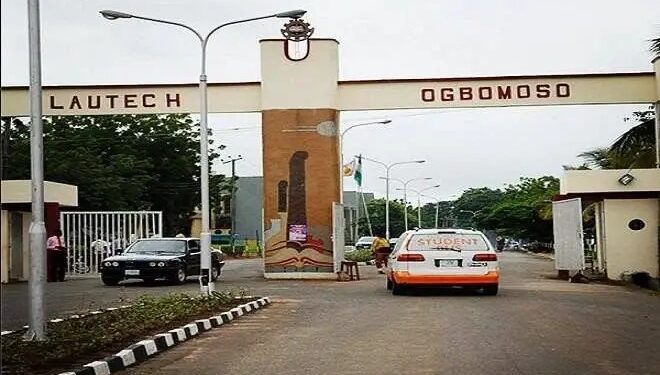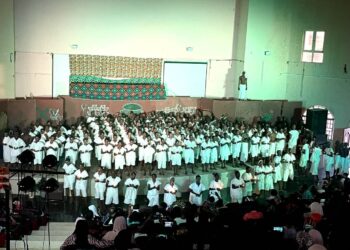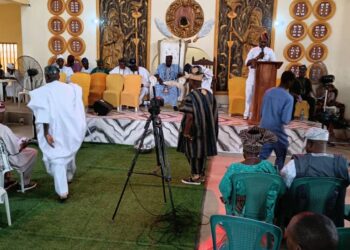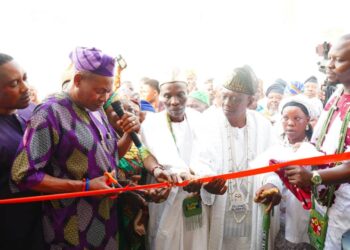Fémí Emmanuel
The Ladoke Akintola University of Technology (LAUTECH), Ogbomoso, Oyo State, recorded another historic milestone on Thursday, April 17, 2025, as the institution held its 17th Convocation Lecture at the University Hall.

The event, which commenced at exactly 11:00 a.m., was coordinated by Professor Banji Oyelaran-Oyeyinka, who also formally introduced the distinguished professors seated at the high table, including the Vice Chancellor, Professor Olátúndé Razaq ROM Kalilu.
Following the formal introductions and acknowledgment of invited dignitaries, Professor Kalilu officially declared the convocation ceremony open. In his brief welcome address, the Vice Chancellor highlighted the importance of the lecture and commended the university’s progress.
The highlight of the ceremony was the keynote lecture delivered by Professor Oyelaran-Oyeyinka, who also serves as the Special Adviser on Economic Matters to the President. The lecture was titled “Can Nigeria Thrive in Times of Tumultuous Rapid Technological Change?”
In his address, the guest speaker expressed optimism that Nigeria could overcome its present challenges and emerge stronger through strategic engagement in agriculture, entrepreneurship, and technological innovation. He emphasized that for Nigeria to thrive in an era of rapid technological transformation, there must be a shift from the conventional over-reliance on white-collar jobs to more sustainable sectors such as agriculture.
He cited the example of China, which invested heavily in rural farming initiatives, thereby boosting food production and economic development. “Nigerians must not limit themselves to teaching and academic pursuits alone,” he said, “but must also engage in large-scale agriculture to reduce dependency on formal employment.”
The speaker also underlined the significance of entrepreneurship and vocational education, advising students to acquire practical skills that would make them self-reliant and less dependent on government jobs. According to him, a university degree alone is not the sole determinant of success in today’s rapidly evolving economy.
Addressing the state of insecurity, he noted that the federal government must prioritize the fight against terrorism and banditry if Nigeria is to attain its development goals. “Security enhances productivity,” he remarked.
In conclusion, Professor Oyelaran-Oyeyinka congratulated the graduating students for the successful completion of their academic programmes and encouraged them to be worthy ambassadors of the institution. The event also featured the recognition of outstanding students from various departments for their academic excellence.
You can get every of our news as soon as they drop on WhatsApp ...To get all news updates, Join our WhatsApp Group (Click Here)












